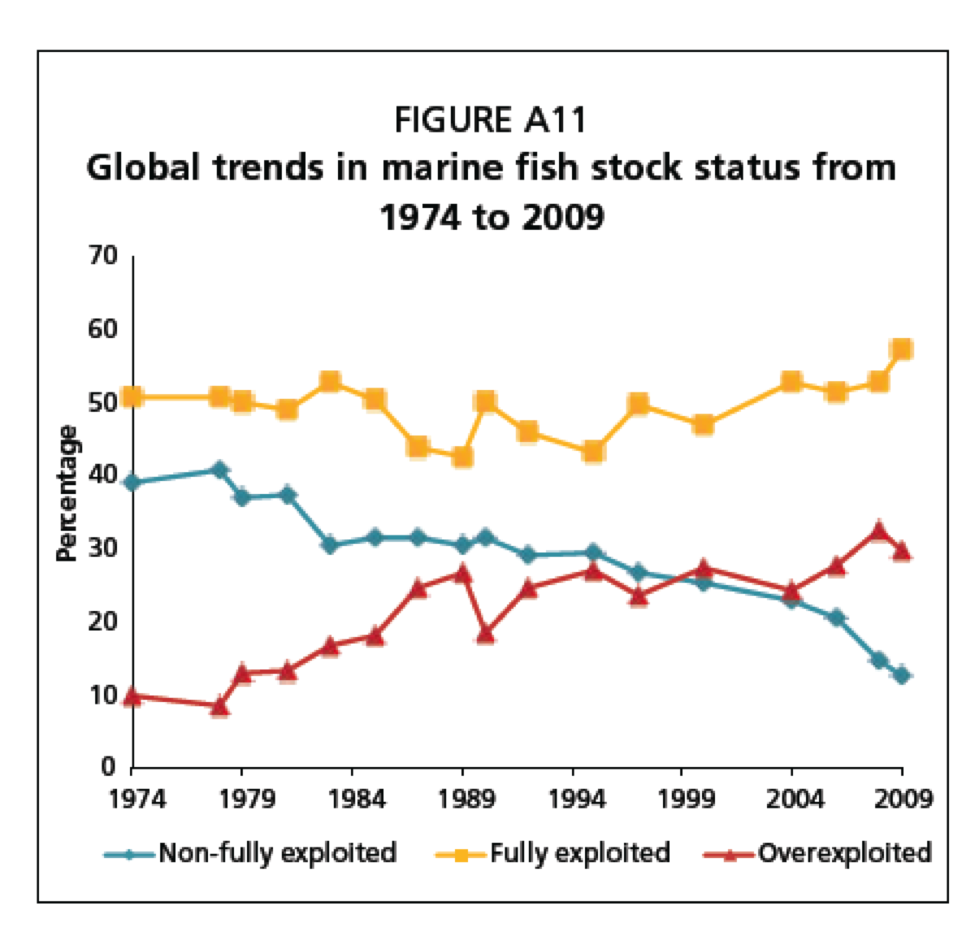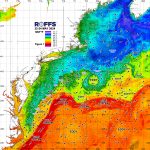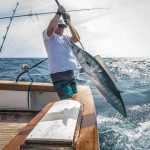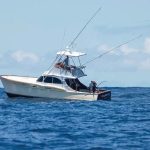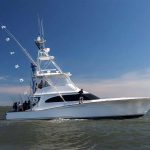Originally published: http://cfooduw.org | September 30, 2015 | Comments by: Dr. Mitchell Roffer / Victor Restrepo
Best website I’ve found in the last 6-12 months (other than ROFFS™). Uses actual science to debunk the media myths on overfishing etc., etc. Read and learn the truth.
The WWF says seafood species critical to human food security will soon be lost unless we halt overfishing and other anthropogenic threats to marine life. The Scombridae family is particularly highlighted as falling by 74% between 1970 and 2012. Overall 1,234 ocean species were assessed in this WWF study and found to have cumulatively declined 49% in that same 42 year period.
The author of this article, Fiona Harvey, touches on a myriad of declining marine species and acknowledges that pollution, plastic detritus, climate change factors and the loss of marine habitat are also effecting these fish populations, not solely overfishing.
But overfishing is the focus of this short article. Louise Heaps, chief advisor on marine policy at WWF UK is frequently quoted and remarks that, “It’s not all doom-and gloom. There are choices we can make. But it is urgent.” She calls for more partnerships between private fishing fleets and governments and advises consumers to, “only eat fish certified as sustainable by the Marine Stewardship Council.”
Science of Fisheries Sustainability
Comment by Victor Restrepo, International Seafood Sustainability Foundation
A new publication, the Living Blue Planet Report, states that the populations of tunas and their mackerel and bonito relatives (i.e., the family Scombridae) declined 74% between 1970 and 2010. This certainly caught my attention because I am familiar with the stock assessments of tunas conducted by the scientific bodies of the Tuna Regional Fisheries Management Organizations (TRFMOs) and their combined status does not seem to support that magnitude of decline. In a meta-analysis of global population trajectories of tunas and their relatives, Juan-Jordá et al. used published stock assessment results (from the TRFMOs and other agencies) and found that the adult biomass of 26 populations of tunas, mackerels and Spanish mackerels declined by 52% between 1954 and 2006.
The Living Blue Planet Report makes use of the marine Living Planet Index (LPI), which is being used to measure trends in thousands of vertebrate marine, freshwater and terrestrial species. The LPI has a data portal that allows anyone to view or contribute to the time series of data used.
A visit to the LPI data portal reveals that not a single one of the TRFMO estimates of population trends for tunas has been used to construct the LPI. Of the 51 species of scombrids, I could only find stock assessment population estimates for Atlantic mackerel.
The majority of the time series used in the LPI are of two types: (1) The stock size trends in the stock-recruitment database that Ram Myers began to compile in the early 2000s (which is based on stock assessment results), and (2) time series of catch-per-unit-effort (CPUE). Unfortunately, there are problems with the way these two are being used:
- The Myers database time series used in the LPI are not up to date. The last year of data in the series used in the LPI ranges from the late 1980s to the mid-1990s. Most of these series can still be found in the original Ransom Myers’ Stock-Recruitment database website which was last updated in August, 2004. That database is no longer being updated and has been superseded by the RAM Legacy Stock Assessment Database, a compilation of stock assessment results for commercially exploited marine populations from around the world.
- The CPUE time series used in the LPI are, in most cases, “nominal” data. That is, catch divided by some nominal measure of fishing effort, without taking into account any factors that can bias CPUE as an index of relative population size (e.g., vessel effects, spatial effects, etc.). Without some form of appropriate standardization to take such factors into account, raw CPUE cannot be expected to measure abundance. But, even after standardization, using CPUE in isolation to infer relative abundance can be problematic (see for example this paper by Maunder et al.). Furthermore, there does not appear to be a systematic way in which the CPUE series in the LPI were selected, and I do not know if there is a reason for why the (hundreds? thousands?) other CPUE series available in the gray and peer-reviewed literature were not also used.
In short, the majority of the data used as the basis for the Living Blue Planet Report, as far as scombrids are concerned, are either outdated or potentially biased. The LPI would very much benefit from exercising sound quality control so that more up-to-date and relevant data are used. In my view, for scombrids, it should use the abundance estimates from the TRFMOs and the relevant national fisheries management agencies that assess these stocks. Such assessments are generally subject to intense scrutiny and utilize multiple sources of data including biological information, which LPI does not.
Having said that, I don’t know if a 74% decline in all of these scombrid populations between 1970 and 2010 is necessarily bad. That assertion depends on so many things … Their population dynamics are so varied: Some are long-lived, like the bluefin tunas and some short-lived like skipjack and many mackerels; some grow faster, some more slowly; some inhabit neritic ecosystems and some live in oceanic ones; some species predate on others … I personally prefer to look at the status of one stock at a time, and to look at it in relation to some measure of its productivity. For example, this report on the status of the 23 stocks of major commercial tunas presents estimates of current abundance relative to the level that would support Maximum Sustainable Yield (MSY), a common practice in the TRFMOs. And, if I wanted to see their status as a group, I would prefer to see the spread of the results for all populations, instead of a single number.
Victor Restrepo is Chair of the Scientific Advisory Committee of the International Seafood Sustainability Foundation. Contact him here: vrestrepo@iss-foundation.org
Image courtesy: depts.washington.edu – please click here.

